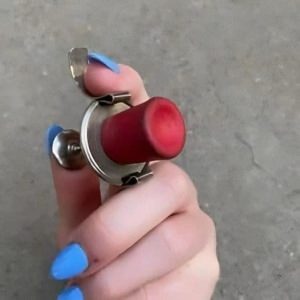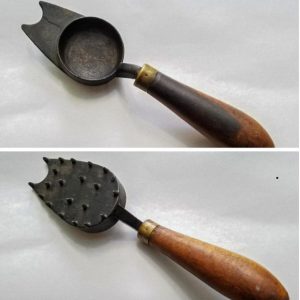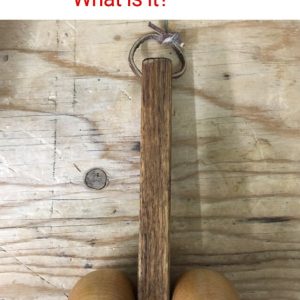For many, childhood memories are wrapped up in the small, simple joys of sweets bought from the local corner shop. One sweet treat that stands out in the minds of those who grew up in the UK is the Barratt Liquorice Stick—once known as Bassetti Liquorice. These iconic black liquorice sticks, with their distinct flat end and shiny appearance, are more than just a candy; they’re a beloved piece of confectionery history that has captured the hearts (and taste buds) of generations.
Let’s take a trip down memory lane, uncovering the history, ingredients, and lasting allure of these hard liquorice sticks that we dipped into sherbet crystals with delight.
A Classic Candy from the School Corner Shop
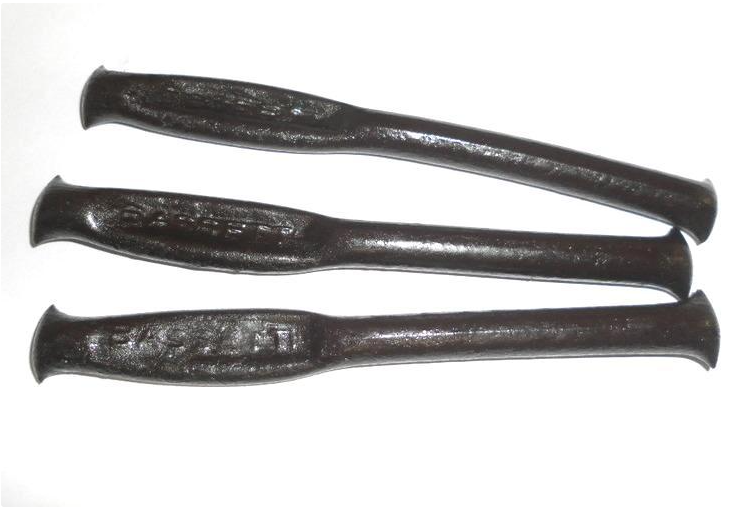
For many of us, the school corner sweet shop was a magical place, filled with brightly colored jars of candies, each with its own unique flavor and texture. One treat that was always in demand was the Barratt Liquorice Stick, a long, hard, and chewy liquorice paddle that stood out for its flavor and versatility. Whether you chewed on it slowly or dipped it in a bag of sherbet crystals for a zesty hit, the liquorice stick was a staple of after-school indulgence.
What made these sticks special was their firm, black or dark brown appearance, which became softer in the summertime and more brittle in the winter months. As you savored the liquorice, its slightly oily coating added to the unique texture and flavor, making each bite a satisfying experience. Even decades later, this nostalgic candy remains a firm favorite among liquorice lovers.
The Ingredients Behind the Barratt Liquorice Stick
Part of what makes Barratt’s Liquorice Sticks so memorable is their distinctive taste, which comes from a carefully selected blend of ingredients. These sticks are made from:
- Treacle
- Wheat flour
- Liquorice extract
- Glazing agent (gum arabic)
- Glucose syrup
- Aniseed oil
The treacle gives the liquorice its signature deep, rich sweetness, while the wheat flour provides structure. Liquorice extract brings the bold, slightly bitter flavor that liquorice enthusiasts adore, and aniseed oil adds a hint of aromatic spice that enhances the overall taste profile. The result is a perfectly balanced sweet that is both complex and comforting.
It’s also worth noting that Barratt Liquorice Sticks are suitable for vegetarians and contain no gelatine, making them a popular choice for those with specific dietary preferences.
The History of Barratt & Co.: A British Confectionery Icon
To truly appreciate Barratt Liquorice Sticks, it’s important to understand the history behind the company that created them. Barratt & Co. was founded in London in 1848 by George Osborne Barratt, and by 1906, the company had grown to become the largest confectionery manufacturer in the world. At its peak, Barratt employed 2,000 workers and produced an astounding 350 tonnes of sweets every week.
Barratt’s legacy is built on its ability to create timeless sweets that appeal to people of all ages, and the liquorice stick is no exception. Though the name has evolved over the years—originally known as Bassetti Liquorice—the taste and quality have remained consistent, making this sweet a cherished part of Britain’s confectionery history.
How Temperature Affects the Texture of Barratt Liquorice Sticks
One of the unique aspects of Barratt Liquorice Sticks is how they react to temperature changes. In the summertime, these liquorice paddles become softer, making them easier to chew and enjoy. On cold winter days, however, they harden, becoming brittle and crunchy. This seasonal variation adds to the charm of the liquorice stick, creating a different experience depending on when and where you enjoy it.
For those who prefer their liquorice soft and chewy, the warmer months are ideal for indulging in this treat. On the other hand, if you like a firmer bite, winter is the perfect time to grab a stick and savor the satisfying snap as you take a bite.
The Barratt Liquorice Stick and the Sherbet Dip Tradition

No discussion of Barratt Liquorice Sticks would be complete without mentioning the time-honored tradition of dipping them into sherbet crystals. The contrast between the sweet, chewy liquorice and the tangy, fizzy sherbet made for an irresistible combination that delighted young candy lovers. The liquorice paddle, with its flat end, was the perfect tool for scooping up sherbet, adding a burst of flavor that transformed a simple candy into a fun, interactive treat.
This classic pairing is fondly remembered by those who grew up in the UK, and while it may no longer be as common to see liquorice sticks and sherbet sold together, the memory of this dynamic duo lives on in the hearts of many.
Nutritional Information: What’s Inside Your Favorite Liquorice Treat?
For those curious about the nutritional content of Barratt Liquorice Sticks, here’s a breakdown of the typical values per 100g:
- Treacle and glucose syrup contribute to the sweetness and overall energy content, making this a high-energy snack best enjoyed in moderation.
- Wheat flour provides some structure and fiber, while gum arabic acts as a natural glazing agent to give the sticks their shiny appearance.
- Liquorice extract and aniseed oil add the distinct flavors that make these sticks so memorable.
While Barratt Liquorice Sticks are suitable for vegetarians and contain no gelatine, they do contain wheat and may have traces of peanuts, so it’s important to keep this in mind for anyone with food allergies.
Why Barratt Liquorice Sticks Remain a British Sweet Shop Classic
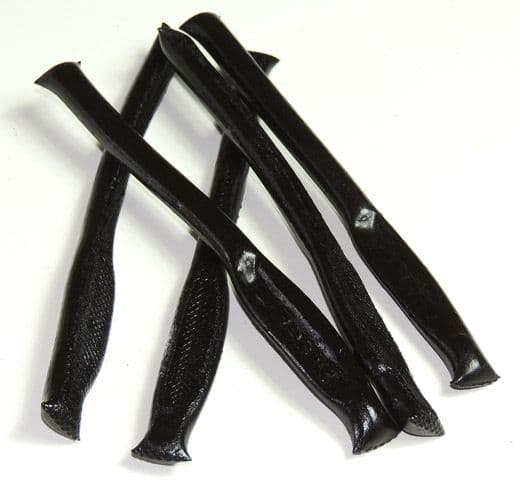
So, why do Barratt Liquorice Sticks continue to captivate sweet lovers today? It’s the perfect combination of history, flavor, and nostalgia. These liquorice paddles evoke memories of childhood trips to the sweet shop, where a simple treat could brighten the day. The unique texture and flavor of Barratt’s liquorice, combined with the interactive fun of dipping it into sherbet, have secured its place in the pantheon of classic British sweets.
Additionally, for those who enjoy collecting or indulging in retro sweets, Barratt Liquorice Sticks offer a taste of history. They represent a time when sweets were made with care, using simple ingredients that delivered big on flavor. Even in a world of modern candy options, Barratt Liquorice Sticks hold their own as a timeless favorite.
The Timeless Appeal of Barratt Liquorice Sticks
In conclusion, Barratt Liquorice Sticks (formerly known as Bassetti Liquorice) are more than just a candy—they are a nostalgic reminder of the golden age of British confectionery. With their deep flavor, unique texture, and ability to stir up fond memories of simpler times, these liquorice sticks have earned their place in the hearts of candy lovers across generations.
Whether you enjoy them soft and chewy in the summer or hard and brittle in the winter, Barratt Liquorice Sticks remain a delightful treat that stands the test of time. So the next time you visit a retro sweet shop or stumble upon these classic liquorice paddles, don’t hesitate to indulge in a taste of history—your childhood memories are waiting.
